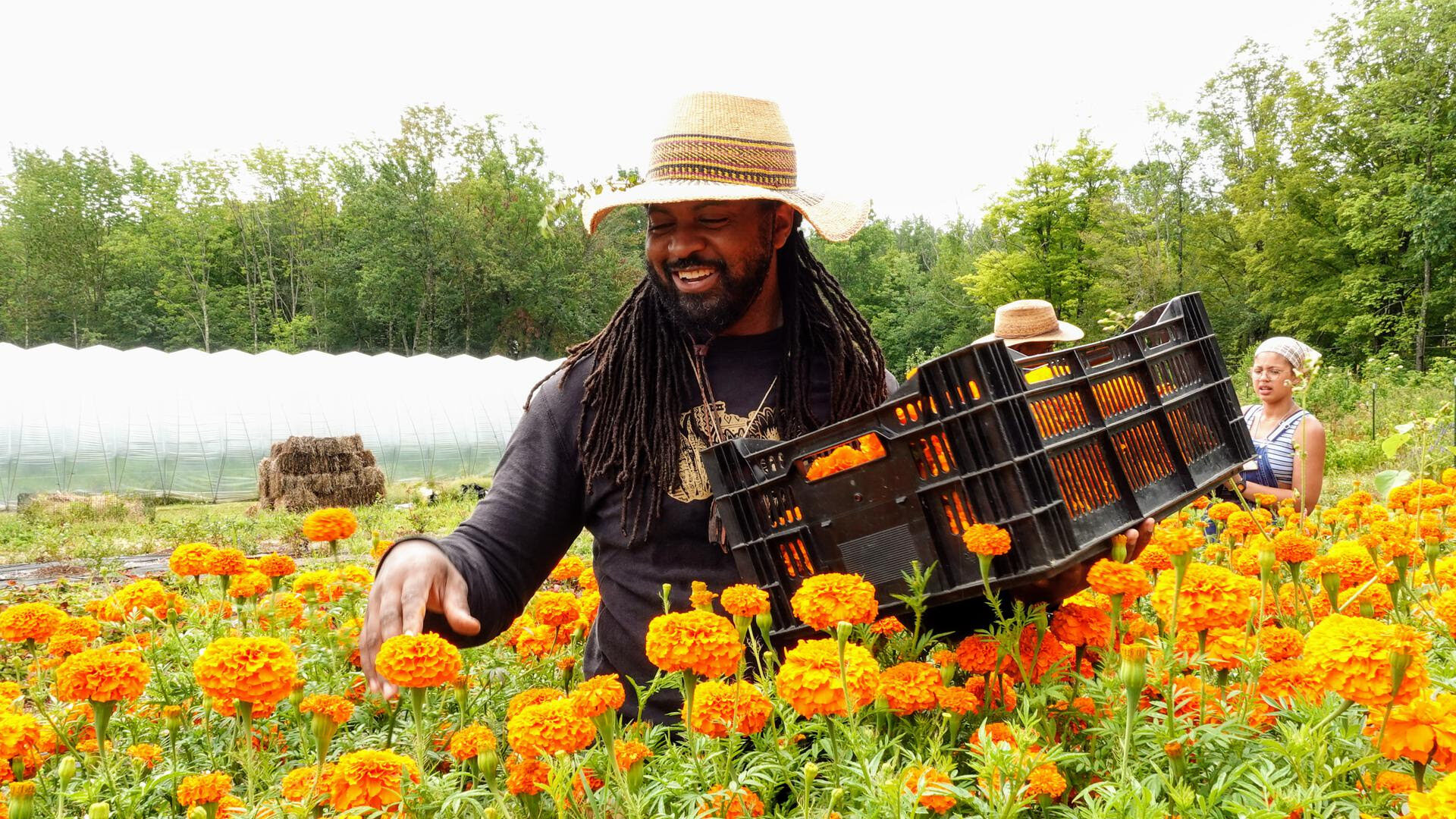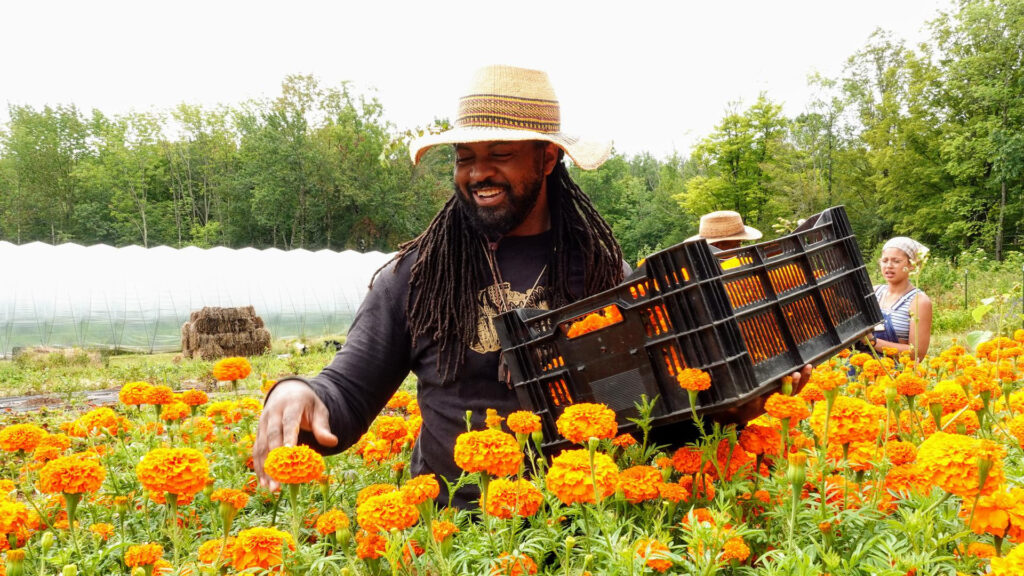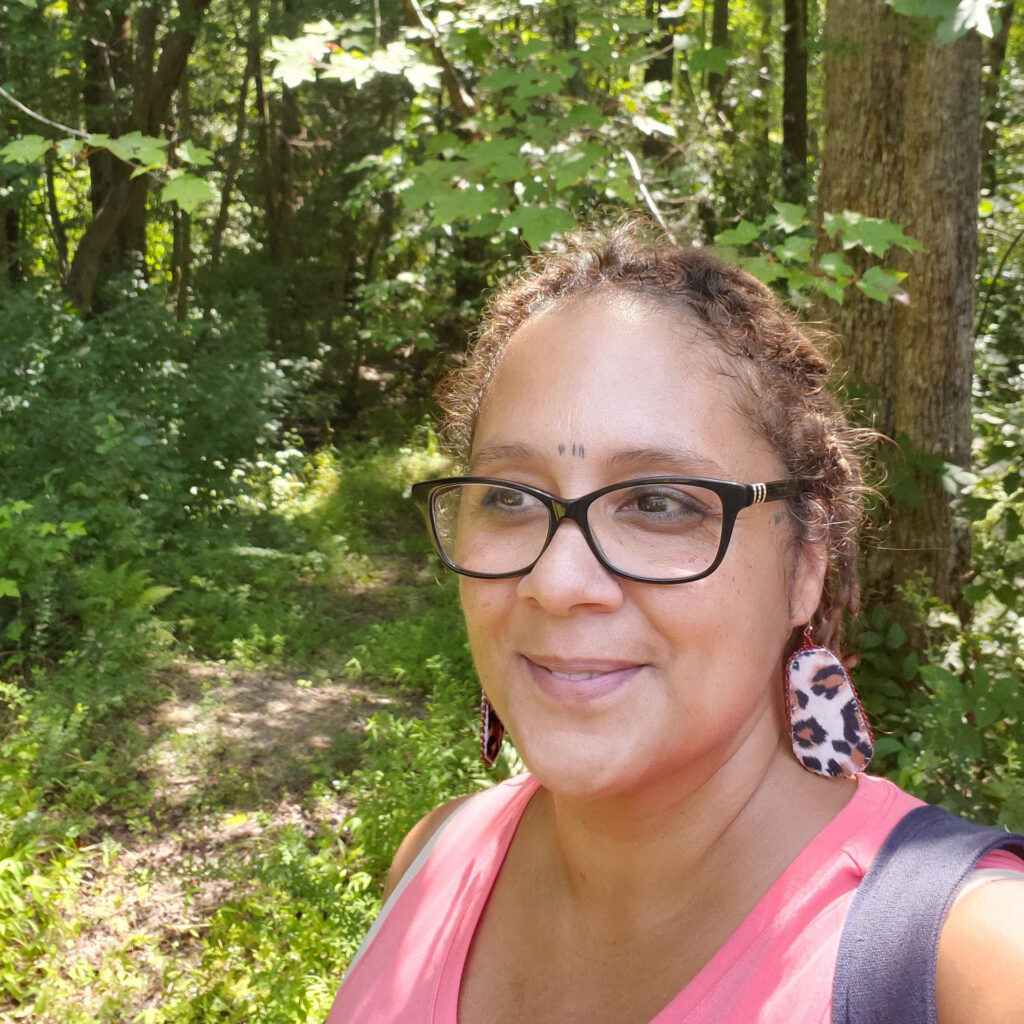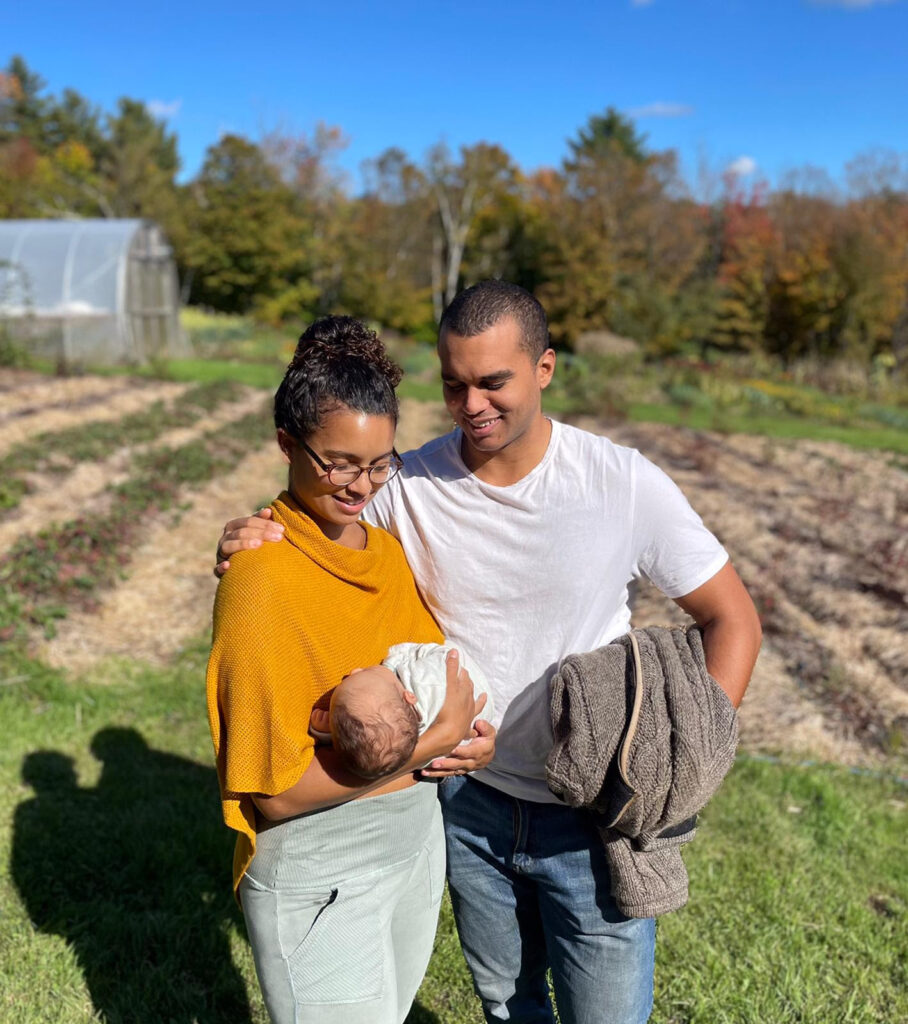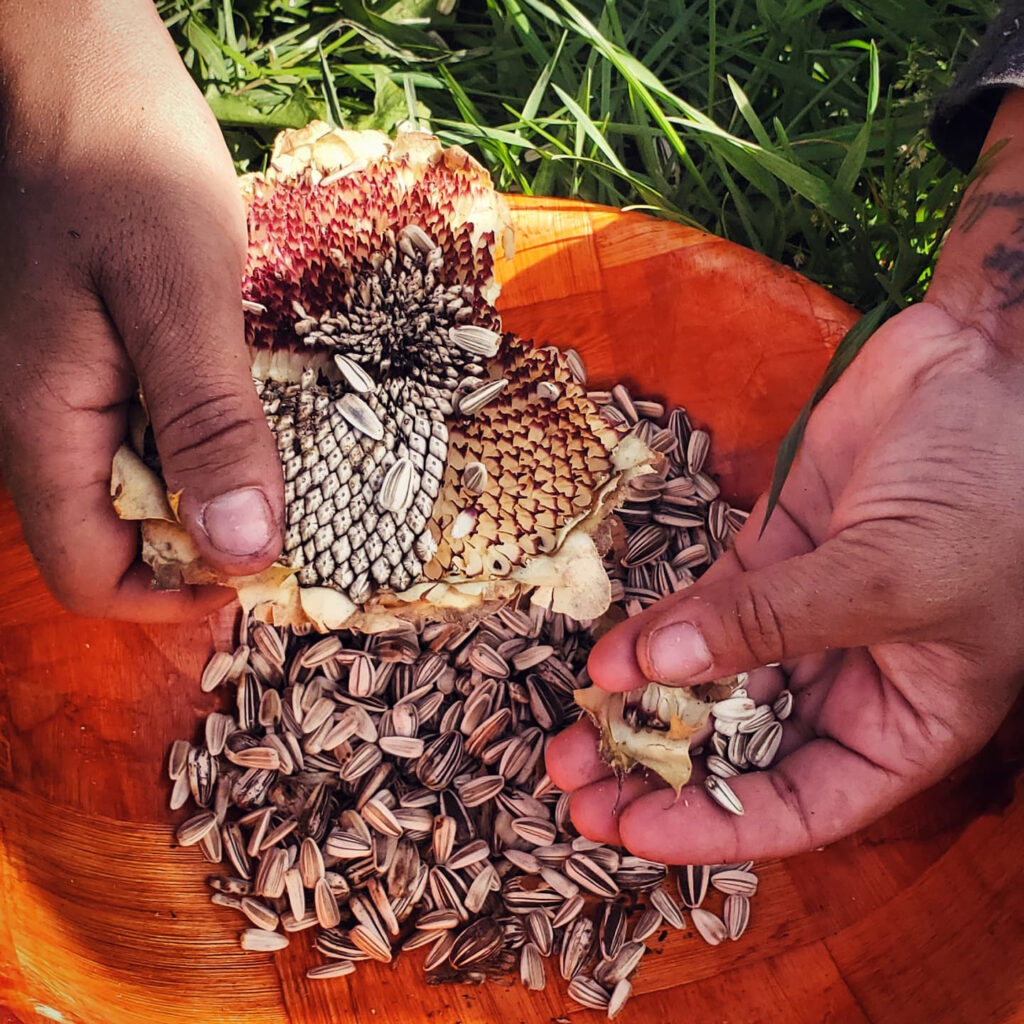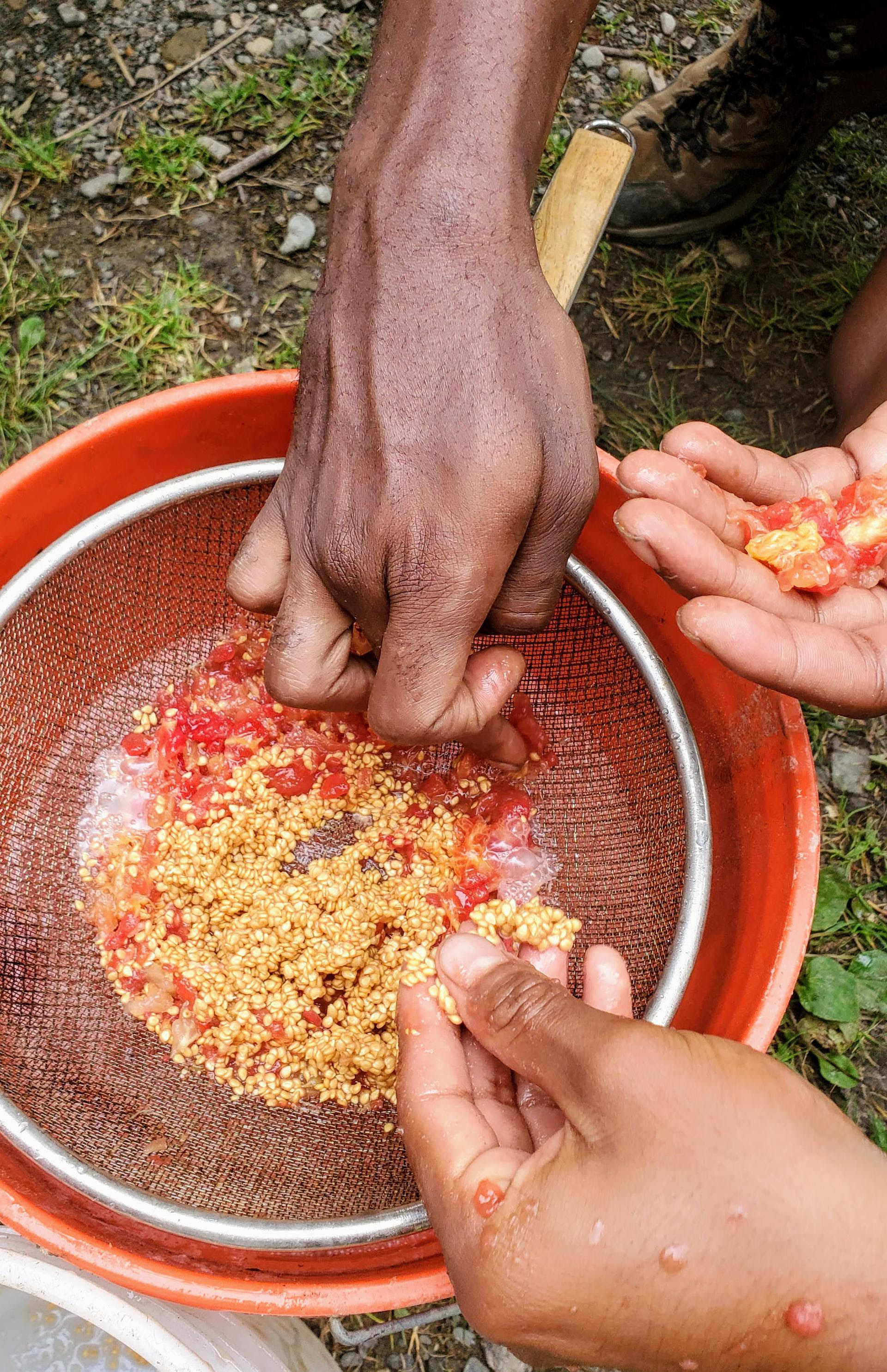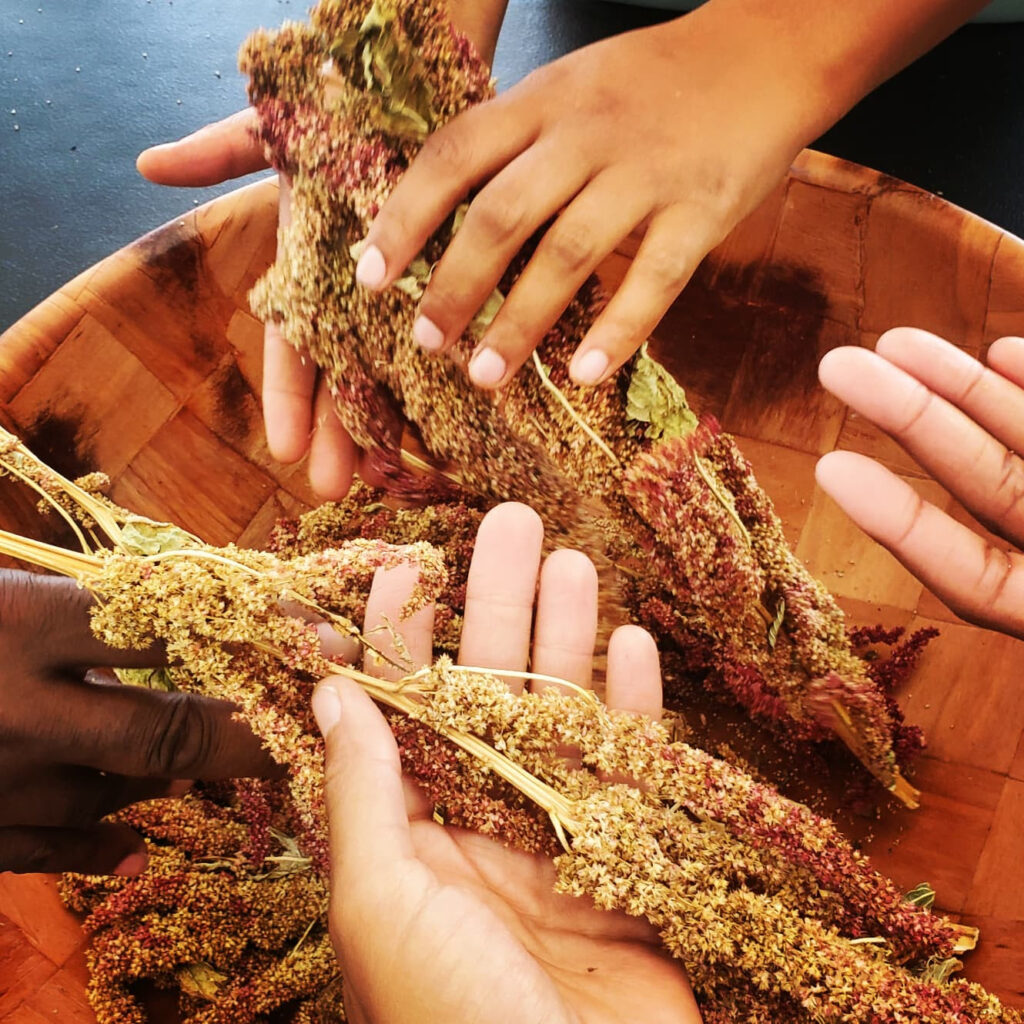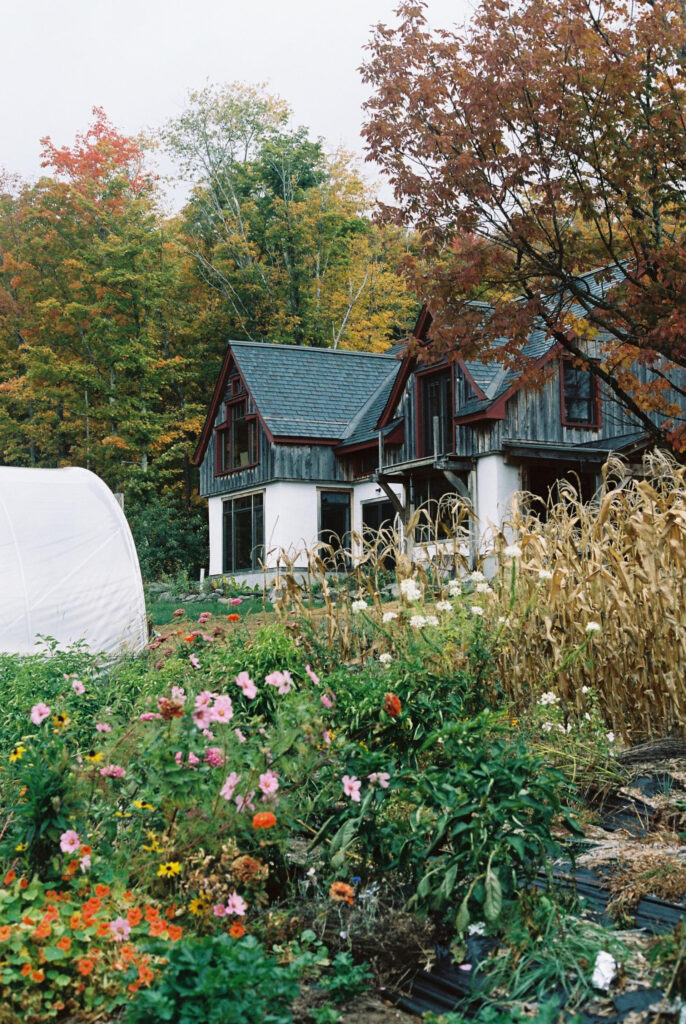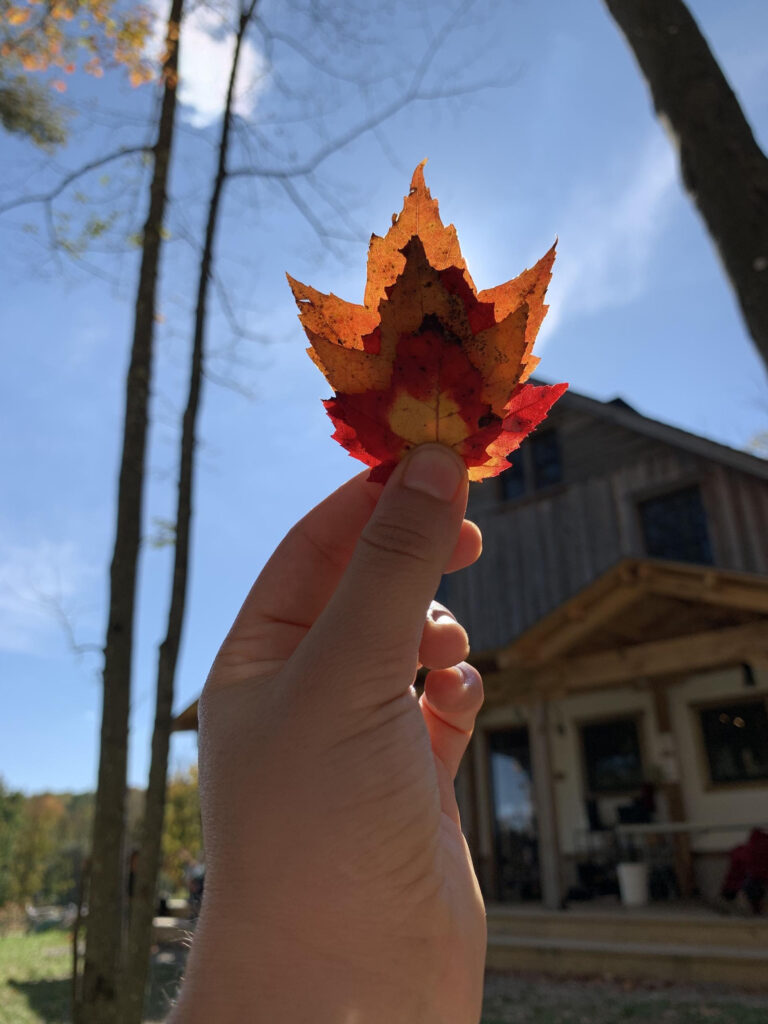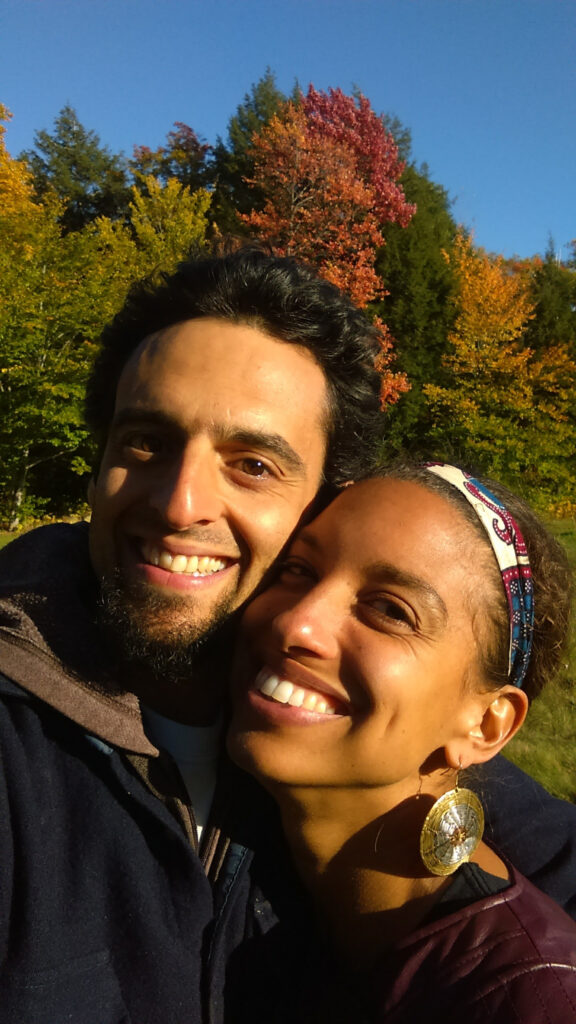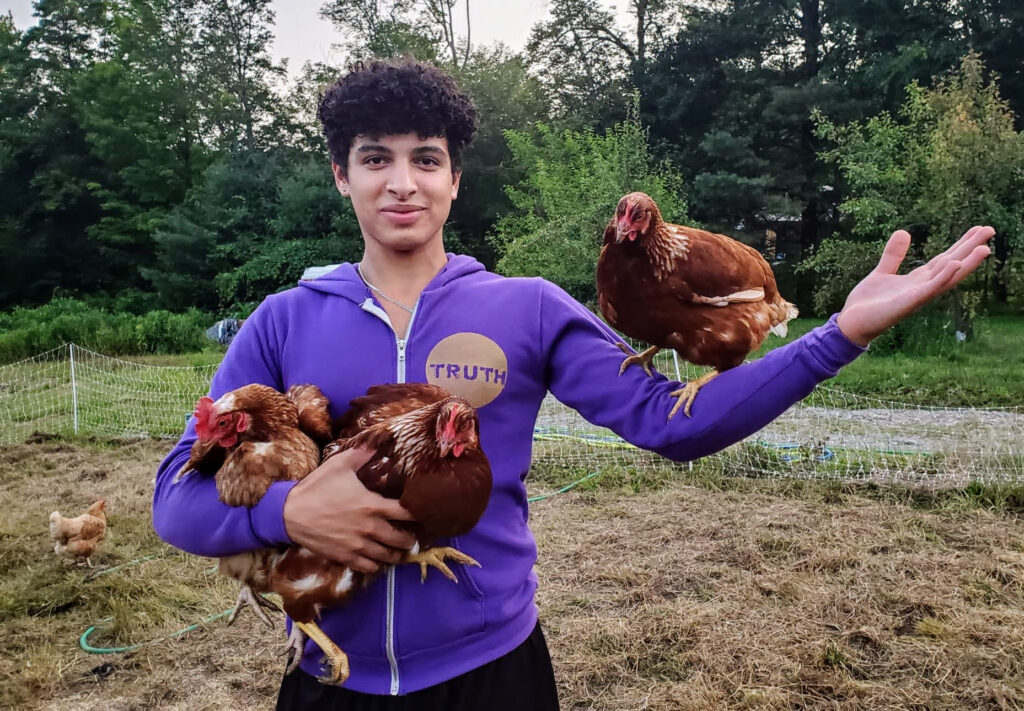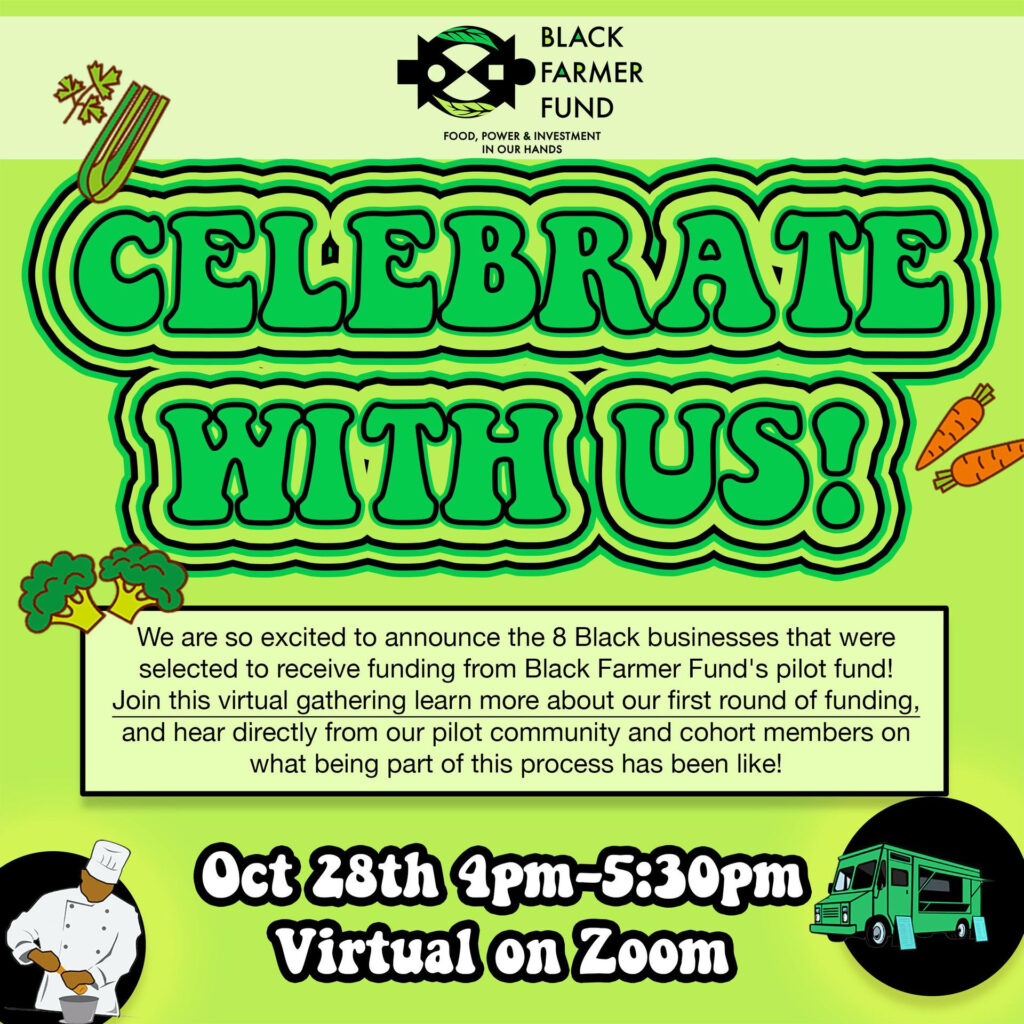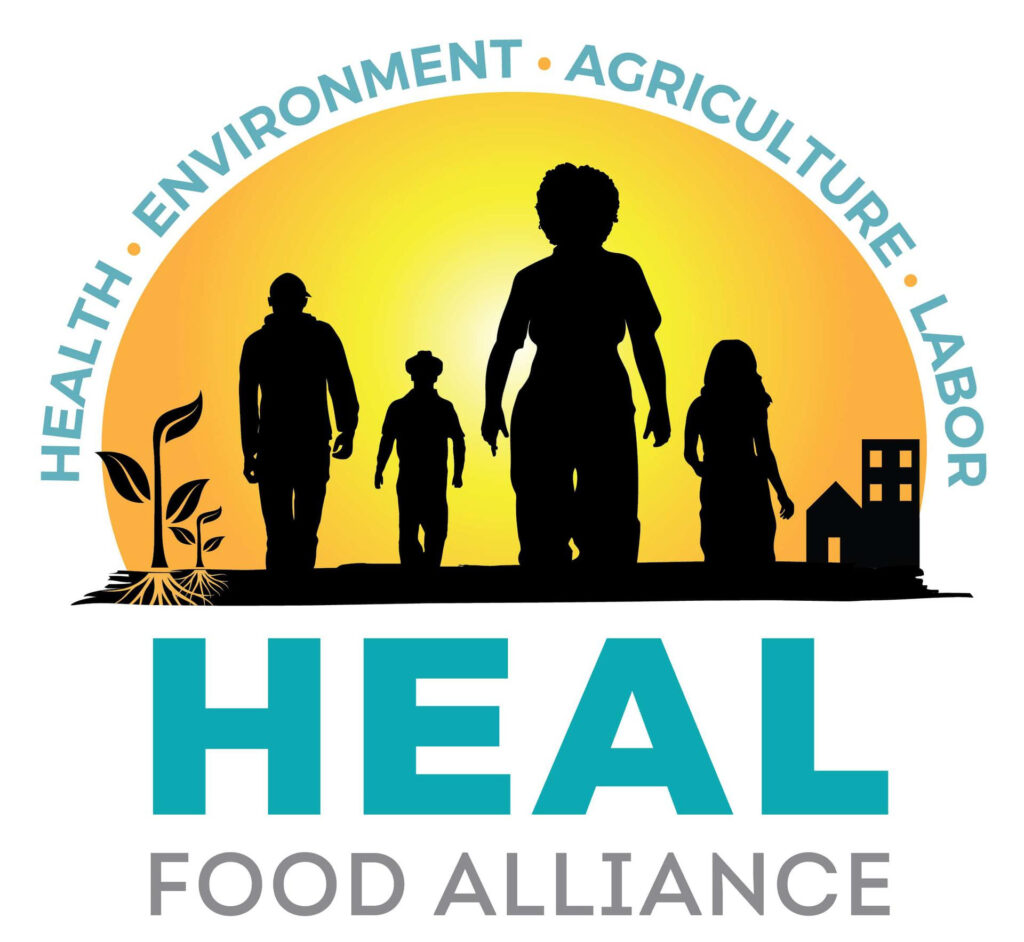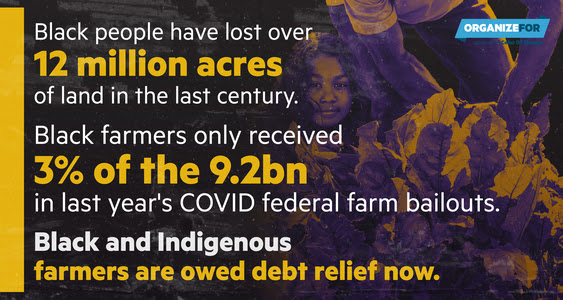“The land is the real teacher. All we need as students is mindfulness.” ~ Robin Wall Kimmerer
Beloved Community,
As we harvest the final fruits of the land, prepare the beds for winter, and wrap up our last on-farm programs, we are beginning the season of turning inward. Just as sap is flowing down to the roots of the trees around us, we are harnessing our energy to invest internally. We just had a beautiful strategic planning retreat and are focusing on internal organizational development, including creating 5 new positions for our team!!!
>>> Soul Fire Farm is hiring for 2022. Details here. Spread the word! <<<
Keep reading for October updates and November invitations.
Warmth & Light,
Azuré, Brooke, Cheryl, Dayo, Ife, Jonah, Leah, Naima and Ria


Ife Kilimanjaro Co-Director / Managing Director “The fall is such a beautiful time of transition from the expansive, dynamic energy of summer to the inward, reflective energy of winter. Like squirrels who gather and store nuts for winter sustenance, we too have gathered input from staff, alumni, board, program participants and local, regional and national allies to inform the planning we do this season for next year and beyond.”
Brooke Bridges – Food Justice Coordinator “My heart is full from engaging more deeply in my role on the farm team, celebrating my one year wedding anniversary with my love, Kai, whom I met on the land in 2019, and birthing my sweet baby at the tail end of the summer. I am so grateful to be in community with all of the folks at Soul Fire Farm: my incredible teammates, the guest facilitators and program participants. Everyone has been so loving and supportive of me and my budding family. I look forward with curiosity and excitement as I deepen my relationship with this land and root my family here.”
An elder in our community, Mama Ira Wallace of Southern Exposure Seed Exchange, taught us that every farmer needs to be a seedkeeper and that every seedkeeper is in turn, a curator of the genetic and cultural pathways of our food. After many years when the only seed we saved was garlic, Ma Ira and our friends Chris and Owen at Truelove Seeds trained, inspired, and equipped us to expand our sense of selves as seedkeepers. October is the season for harvesting many of our seeds, which need all the way until the frost to mature. In celebration of the miracle of seed, we highlight three of our favorites!
Plate de Haiti tomato is from Leah and Naima’s ancestral homeland of Haiti and was brought to Louisiana in 1793 by Creole refugees who were fleeing during the successful uprising of enslaved people. The plant grows up to the roof in our high tunnels, and produces abundant, firm fruits that are great fresh, and amazing in sauce.
Bee Balm, also known as Wild Bergamot and as #6 by the citizens of the Mohican Nation, is a mint-family wildflower native to our region and an important food for hummingbirds, moths, butterflies, and bees. Bee balm also grows wild on parts of the Stockbridge-Munsee reservation and is steeped as tea for colds, flu and pain relief. Mohican herbalist Misty Cook writes about this and other native herbs in Medicine Generations.
Callaloo, also known as amaranth or tete, is rich in vitamins and minerals, and considered a “superfood” among greens. It is cooked down into a delicious, savory stew that is central to cuisine across the Diaspora. In Yoruba, amaranth is called “tete” and is considered the first plant to grow on earth, and revered as the elder of all other plants.
We also save sunflowers, calendula, blue coco snap bean, sweet annie and more! Soul Fire Farm sells our seeds through Truelove seeds and remits 100% of our proceeds to the Stockbridge Munsee Band of the Mohican Nation.

In the spring of 2007 we broke ground for the main house here at Soul Fire, now affectionately known as the Hive. In that year we dug and poured the foundation, designed, cut and erected the timber frame, and installed the roof system – ceiling, insulation, venting, chimney and slate. The straw bale and plaster walls were still a vision in our minds to come the following year. As Fall licked at our fingers, we closed in on completing the roof. “Just in time for winter!” we thought. The frosty mornings of late Fall meant we worked through a thin layer of ice on the roof and scaffolding until the sun peered over the mountains, bringing a thawing relief to our fingers and nerves. The day before Thanksgiving, as the light waned with the tired warm glow of the season, we installed the final slate tile. Climbing off the roof, a light snow flurry started, the first of the season, leaving a thin layer on our new roof, blessing our project with it’s tender affirmation. Little did we know, this would become a tradition.
Each year since, despite all our planning, all our figuring and coordinating, pre-ordering and starting early, as if the universe is conspiring, the roofs of all the buildings here always are completed just before Thanksgiving, and are often coated with a gentle snow shortly after. Even the roof on our most recent building, the Sanctuary, was completed just before Thanksgiving last year. This will be the first year since then that we do not have an unfinished roof. You may be thinking that’s a good thing for us this year. And, we mostly agree. We are prepared for the more severe weather of the Winter season well ahead of time. We are not working in higher risk conditions, nor contending with cold fingers and toes. The food is packed away and our shelters are ready, as our animal siblings in the forest know so well.
Yet, this also means this is the first year in over a decade that we are not on a roof, on the highest points of this land with a birds eye view watching the crops turn from swollen and brilliant hues to yellows and browns. We are not on the roof in late summer as the farmers bring in the most bountiful harvests of the season to share with our community and put away in our cupboards for the winter. We are not on the roof in the fall as the trees and surrounding hills alight with spectacular colors. And we are not on the roofs in the late Fall as the trees tire from holding onto their little brilliant food producers and let go, becoming bare, and preparing for their winter slumber.
You’re probably waiting for some poetic closure to this, but that’s it. We are changing. We are growing. And every moment is an expansive opportunity with multiple existing truths. So we are left with the call to be present, and ask ourselves: what would it look like if we chose gratitude and inhabited the abundant blessings that surround us in every moment?

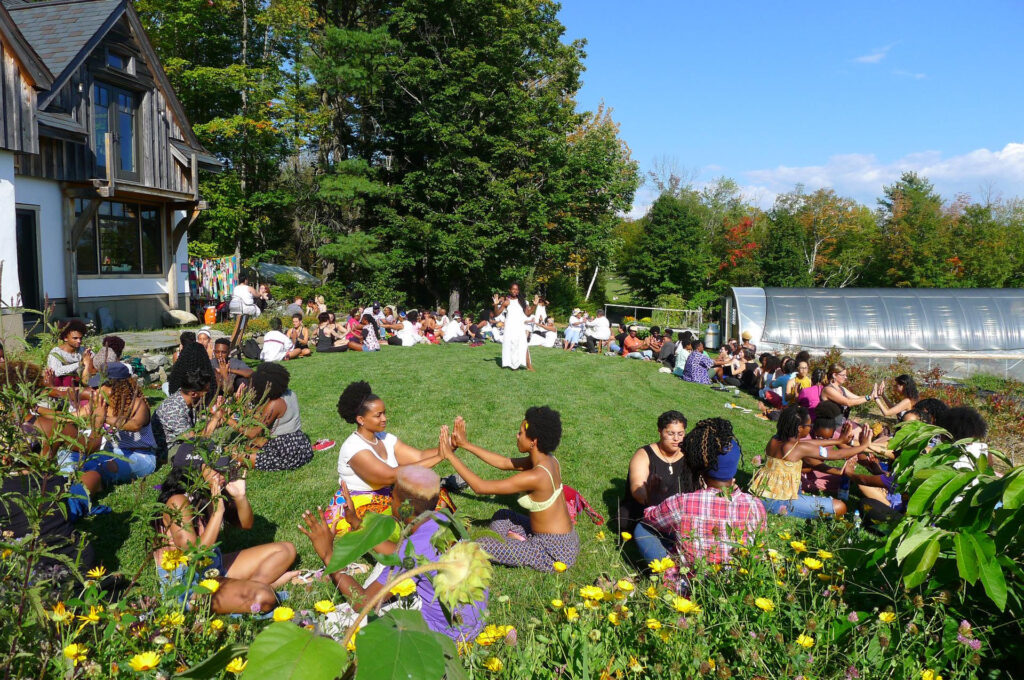
We Make Circles: On Feeling, Tracing, and Writing Non-linear Landscapes
Soul Fire Farm is hosting a 3-part poetry workshop for BIPOC land stewards led primarily by poet, performer, and educator Jo Stewart, with drop-in visits by writer, editor, publisher, and shamanic healer, Janice Lee, as well as writer, co-director and farm manager of Soul Fire Farm, Leah Penniman. November 5, 12, 19 from 5:00 – 7:30 PM Eastern.
All three sessions are required. Register here.
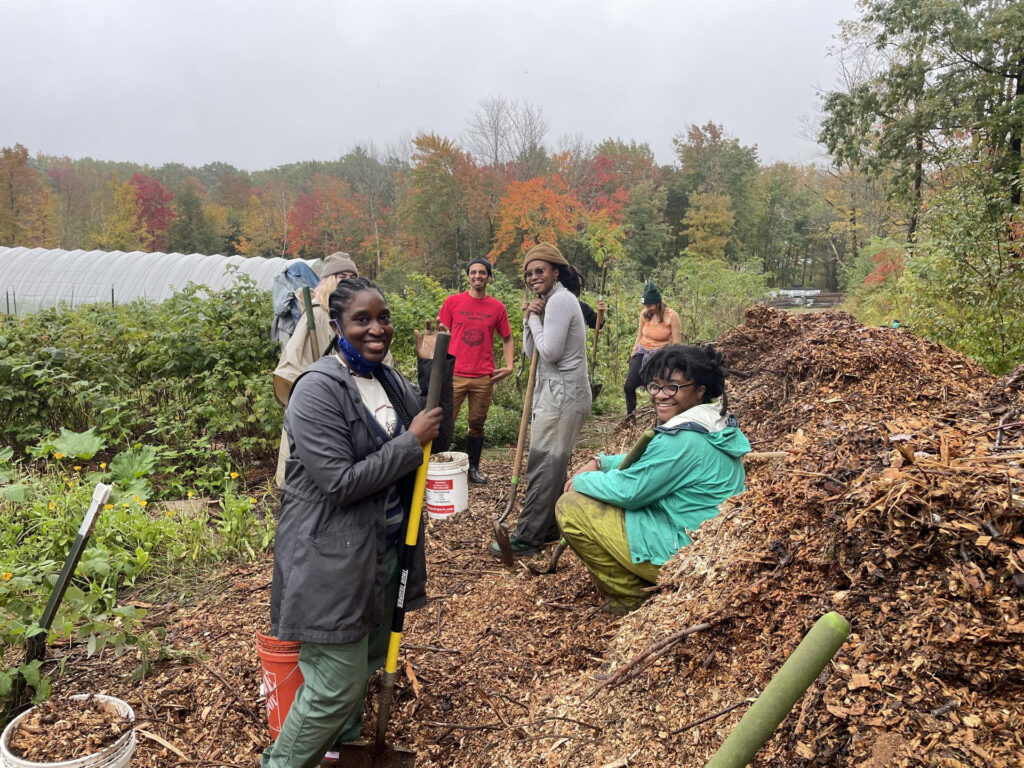
Work and Learn Days & Final Harvest
During our October community Work & Learn Days we were able to accomplish so much through collective effort, including creating fungal dominant soil ecosystems in our perennial beds with wood chips, harvesting every last fruit from our high tunnels and putting the beds to rest. October 19th we were joined by our compas from Hudson Valley Farm Hub, and were thrilled to have a bilingual event with the best potluck since pandemic!
Our FINAL Work and Learn Days of the year are November 9 and 11, if you want to help us with the final push! Registration required. Learn more here
And we will celebrate our final harvest of 2021 on November 2! We welcome you to bring your bags and baskets and take home any vegetables and herbs that you want. Limited spots, register here.
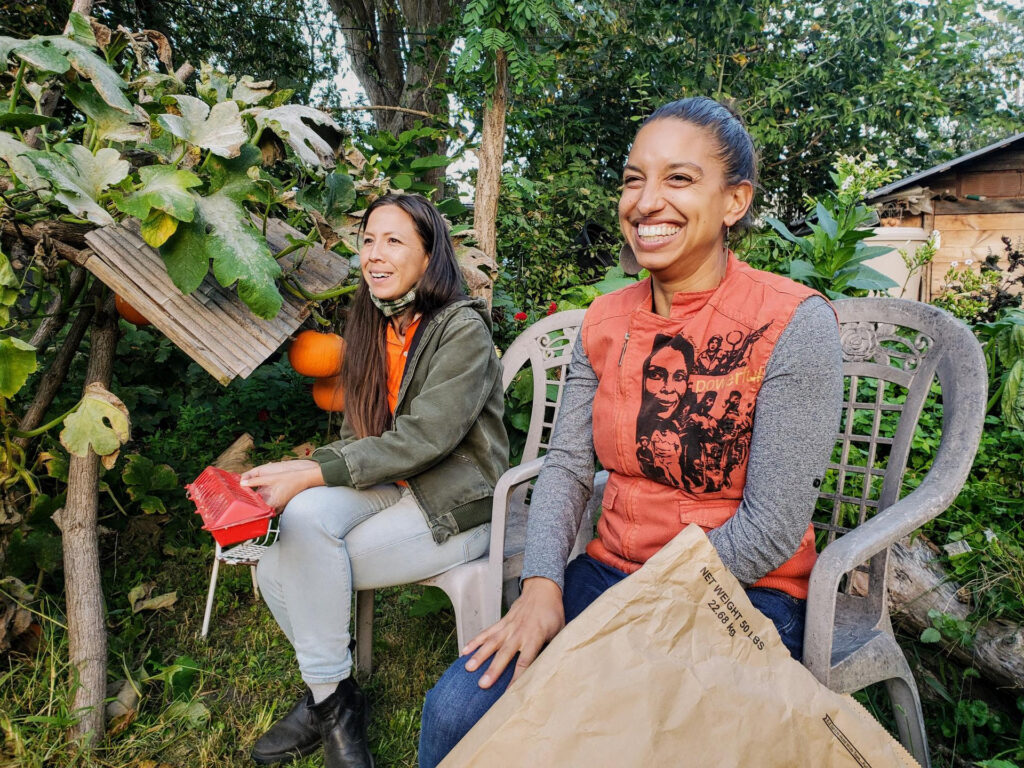
Chickens in the City
Chickens in the City workshop was a blast!!! We learned the basics of raising chickens in the city, including housing, feed, equipment, regulations, and health. Check out the helpful guide and photos from our time together in Azuré’s backyard jungle!
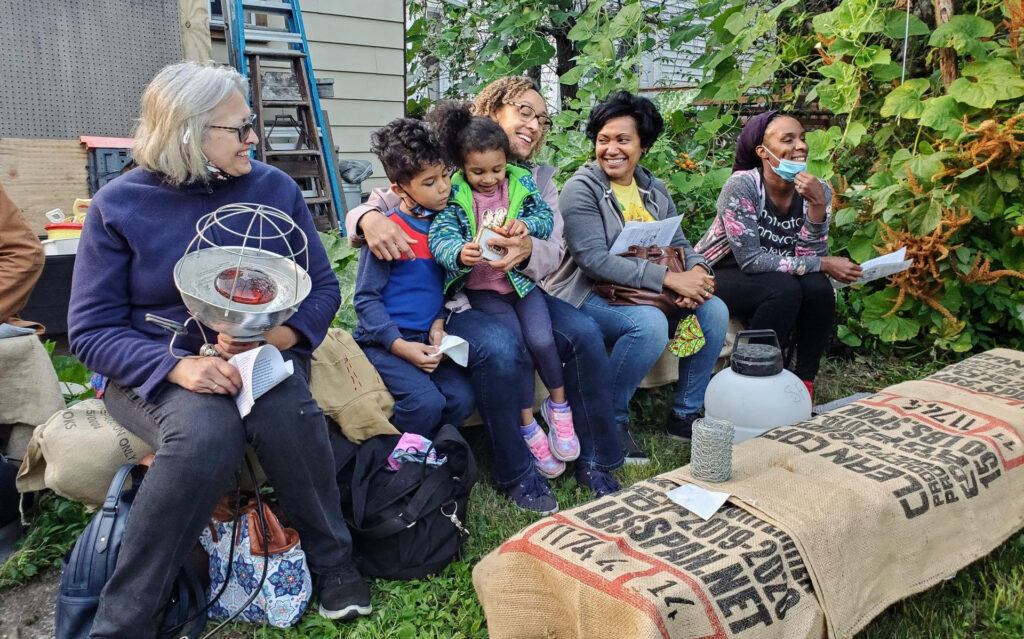
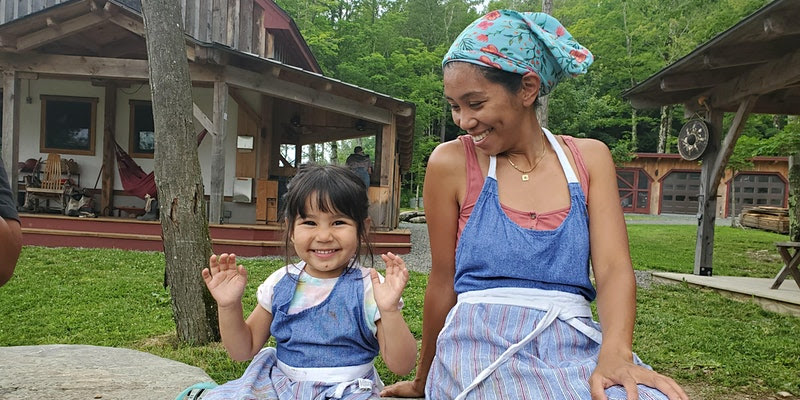
Preserving the Harvest
Ria Ibrahim Taylor, “Kitchen Magician” and Farm-to-Table Manager at Soul Fire Farm, delivered an incredibly informative virtual presentation and Q&A on 10/11, sharing tips on preserving the harvest, including fermentation, drying, freezing, canning, and creative seasonal recipes! If you missed it, you can watch the recording here.
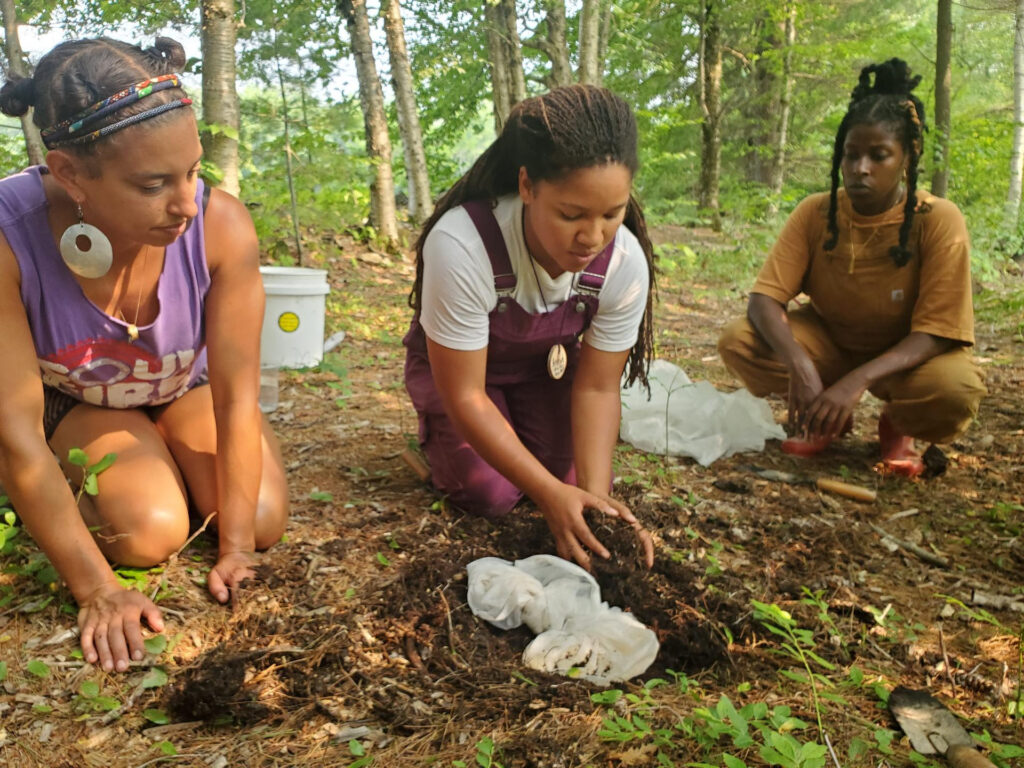
Ask a Sista Farmer
On October 1st we were joined by the brilliant Amirah Mitchell, Seed Keeper at TrueLove Seeds, sharing about African heritage crops, seed growing, and seed stories. You can watch that episode (#32) on Soul Fire’s IGTV here.
Check out other past episodes here (FB) and here (IGTV) & catch the next episode November 5th (4:00-4:40 ET) with Mama Ira Wallace of Southern Exposure Seed Exchange on instagram live @soulfirefarm
Learn More about Ask a Sista Farmer
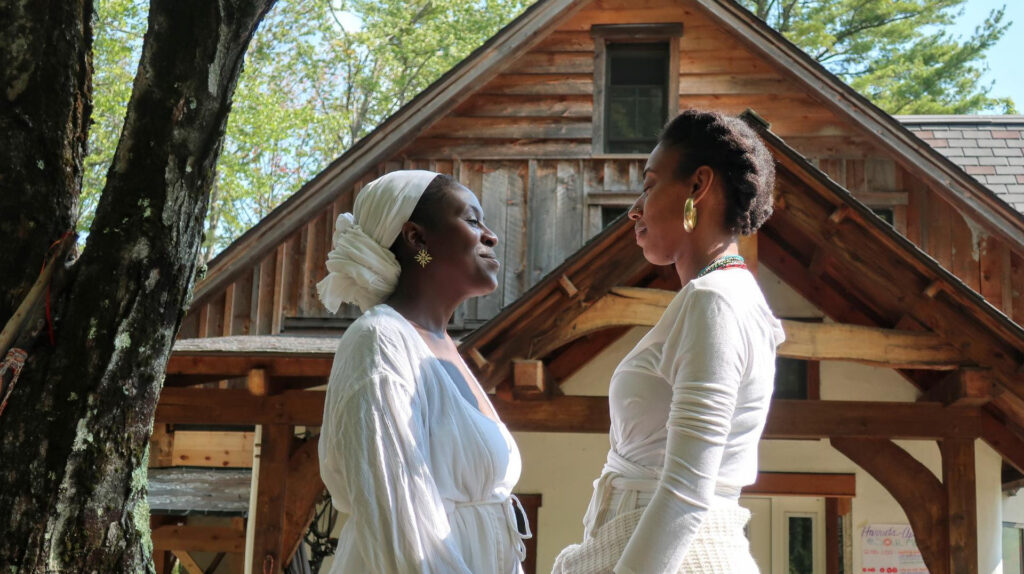
PASSING AND SHARING THE MIC – SPEAKERS COLLECTIVE
Soul Fire Farm receives 350+ requests for public speaking and media appearances every year, many asking for founders or senior leaders. As you know from our Beyond Heroes praxis, it is deeply important to us that we contribute to decentralizing voice and platform, and insisting that speaking opportunities further our mission of food and land sovereignty.
One of the ways we pass and share the mic is through our Speakers Collective. Alumni and comrades of Soul Fire Farm can join the collective, get oriented to some public speaking tips, sign up for speaking engagements, and be fairly compensated for their time. The speakers collective is FIRE and has been inspiring folks across the continent to mobilize for a better food system.
In addition to the speakers collective, we have been working to train up and support all members of our staff to speak at venues, and have also referred-out over 75% of speaking requests to other organizations in our movement space.
We continue to learn, and want to hear how you approach this work. In what ways does your organization decentralize voice and make sure more folks get to be on the mic?

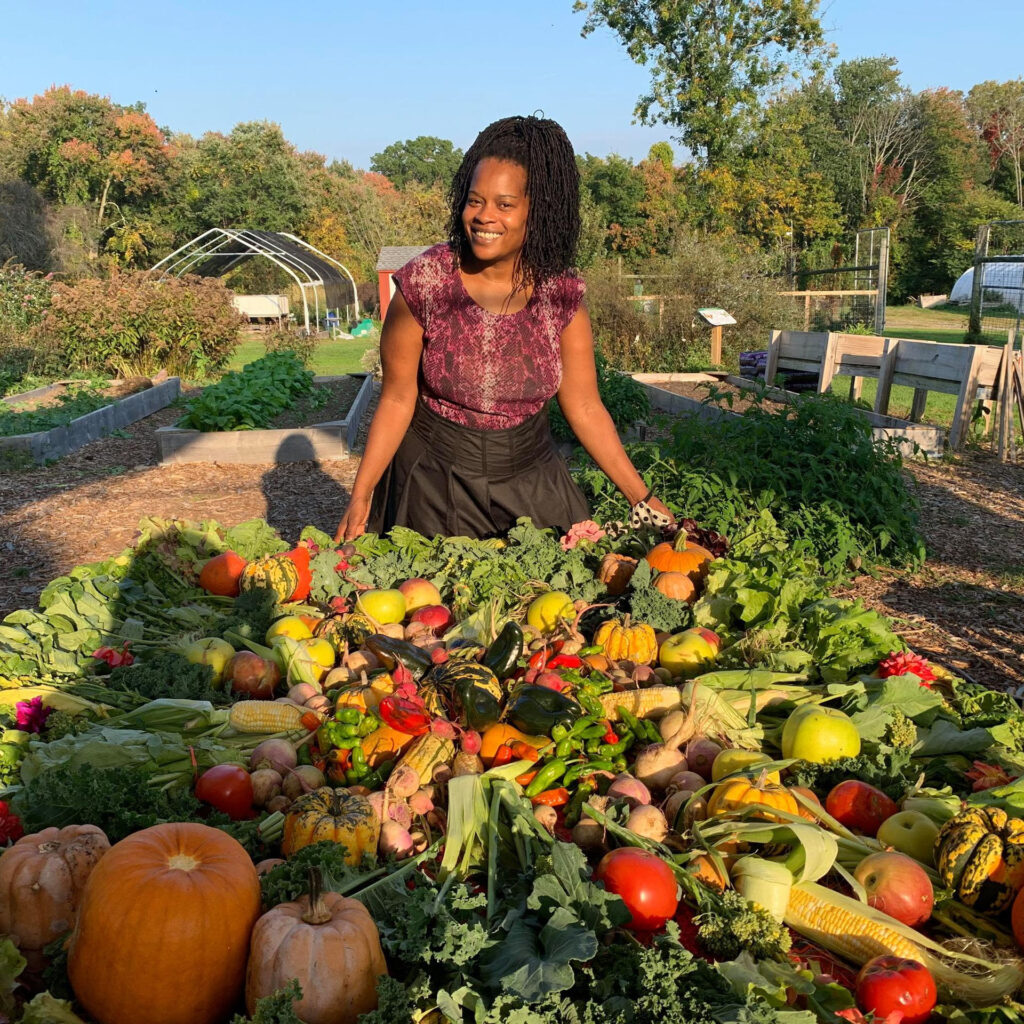
Chef Nadine Nelson, proud Soul Fire alum and culinary activist, is the heart behind Global Local Gourmet, a roving community supported kitchen that seeks to empower people through interactive culinary education and food events. Dubbed the Green Queen of Cuisine, Chef Nadine is a trained educator, writer, artist and food professional based in the North East. Her aim is to use food as social sculpture and a catalyst to engage people in dialogue around the role of food in sustainability and culture. Her writing has appeared in Plate Magazine, Zester Daily, Farmer’s Almanac, Kwanzaa Culinarians and more.
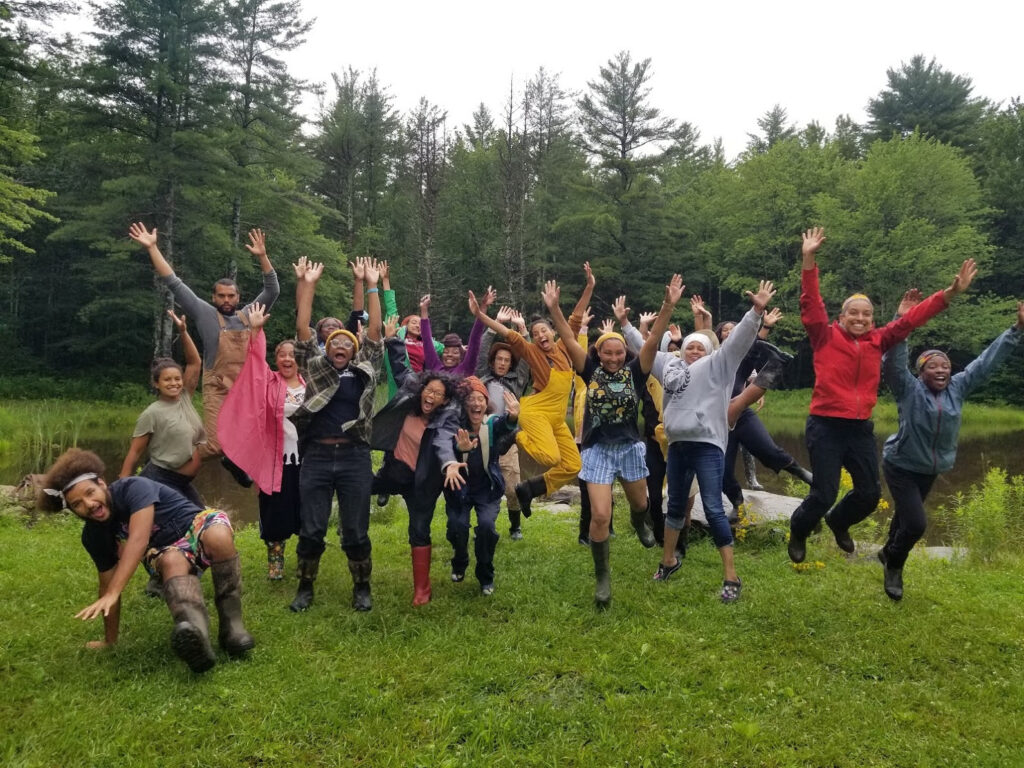
We’re all in this to-GATHER
Psssstt… Alumni Family… guess what!? It’s almost time for our annual Fall Alumni gathering!! Be sure to check your inbox for a save-the-date email and register today!

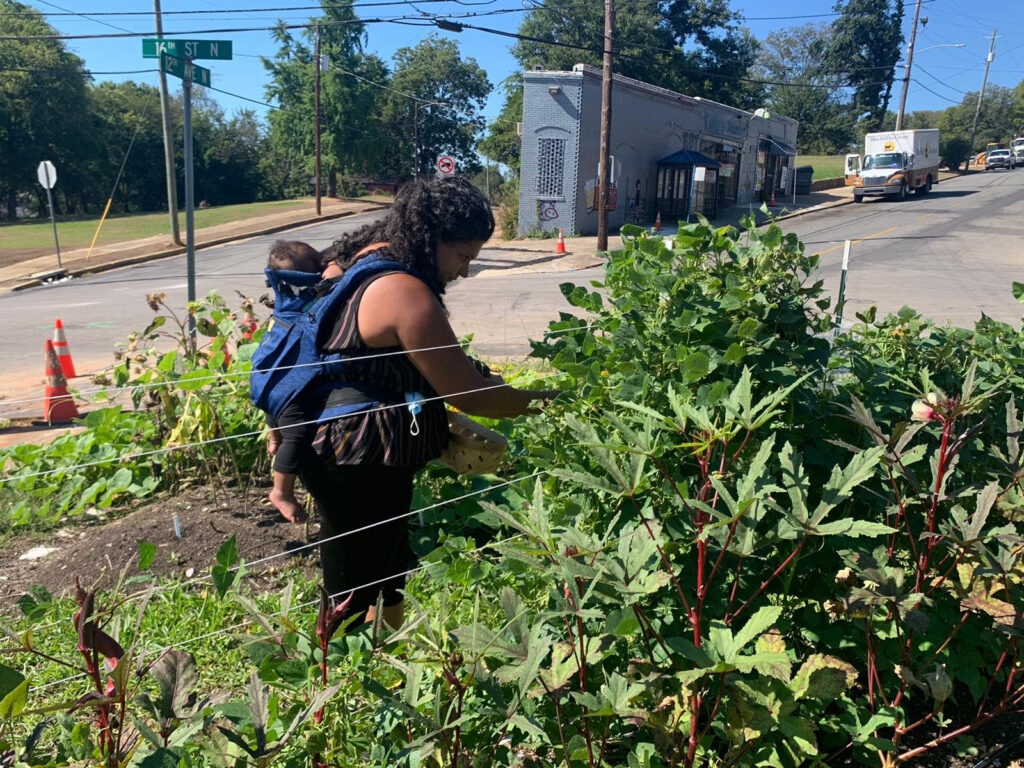
This month, we lift up Braiding Seeds Fellow Maria Dominique Villanueva from Fountain Heights Farm. She is currently working on developing an aquaponics system for her farm project. They are in the process of doing the calculations of water, pressure, and cycling of NH3 & NO2. The building is gradually coming together. She and her husband recently dug a 40” deep 16’x4’ hole by hand which will give a nice size space for the fish to swim and grow large. Other than the tank, they are leveling everything above ground using a series of intricate cuts. She is also preparing for their Winter CSA to begin.

11/2 Gleaning Day
11/5 Ask A Sista Farmer with Mama Ira Wallace
11/5 We Make Circles: Writing Workshop for BIPOC Land Stewards
11/9 Community Work & Learn Day
11/11 Community Work & Learn Day
11/11 Laying Hen Giveaway
11/12 We Make Circles: Writing Workshop for BIPOC Land Stewards
11/17 Uprooting Racism in the Food System
11/19 We Make Circles: Writing Workshop for BIPOC Land Stewards

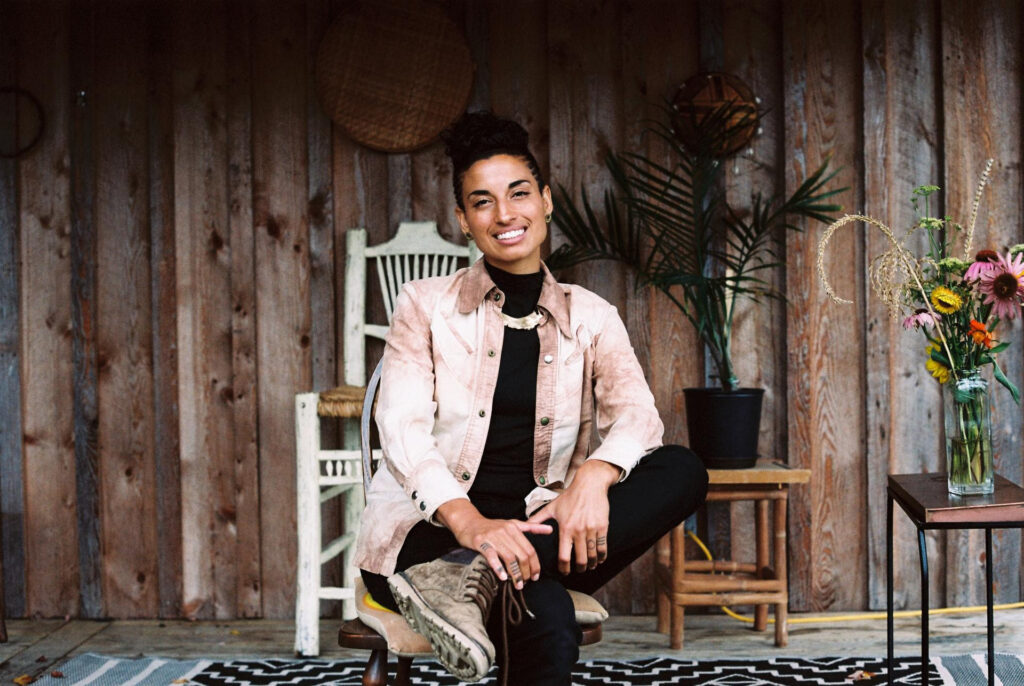
- Naima Penniman, Chronogram, in print interview about belonging to land, interdependence, food solidarity, cooperative economics, battling food apartheid and the legacy of Jim Crow.
- Chapter in The Organic Farming Revolution: Past, Present, Future
- Essay in Black Food: Stories, Art, And Recipes From Across The African Diaspora, Edited By Bryant Terry
- Cheryl Whilby, “Soul Fire Farm and Creating Regenerative Food Systems” Podcast on Lift Economy
- Leah Penniman, Portrait, Americans Who Tell The Truth

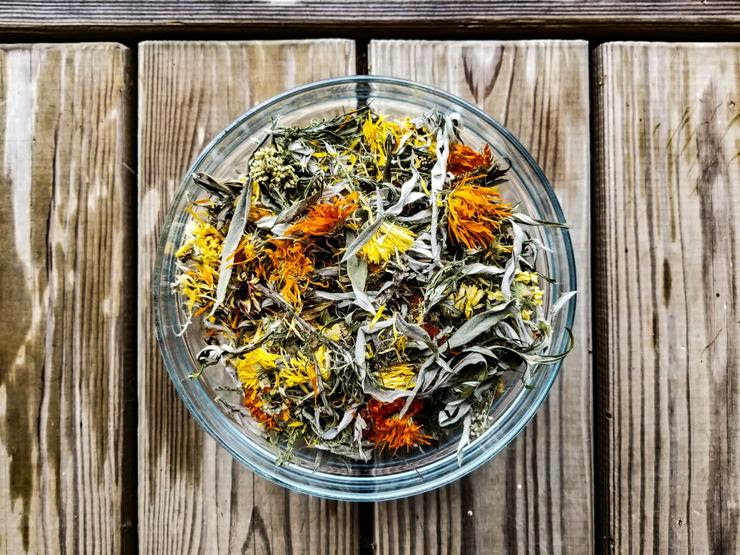
Ancestor Voices Spiritual Bath
A spiritual bath to tune the heart to the ancestors, containing sage, marigold, mugwort, yarrow, and prayer. The herbs are grown at Soul Fire Farm following Certified Naturally Grown standards and Afro-Indigenous heritage practices. Each container has enough herbs for one spiritual bath.
Purchases from this store support the food justice work of Soul Fire Farm. Thank you for helping us free the people and the land!

CELEBRATE our Ecosystem partner Black Farmer Fund on 10/28 as they announce the launch of their pilot fund! Black Farmer Fund is a community investment fund that invests in Black food systems entrepreneurs in New York State. Dreamed up in 2017, BFF has established itself as a means for members to access non-extractive capital recognizing the historical discrimination of lending and banking practices which informs the racial disparities present in our agricultural system today. Register and find out more here. BFF is also looking to hire a Media Strategist consultant. Please share widely!
HEAL’s School of Political Leadership is ENROLLING
Are you interested in building skills to develop a campaign plan, organize in your community, win policy change, and run, represent and communicate your vision for change? Click here to learn more about to program and how to apply. Program Dates are January-June 2022. HEAL Food Alliance is also currently hiring for three positions. Visit the link to find out more.
Take a moment to SIGN the petition urging Secretary Vilsack and the Democrats on the Senate Committee on Agriculture to continue their vigorous defense of the USDA emergency debt relief program for Black farmers, Indigenous farmers and farmers of color.

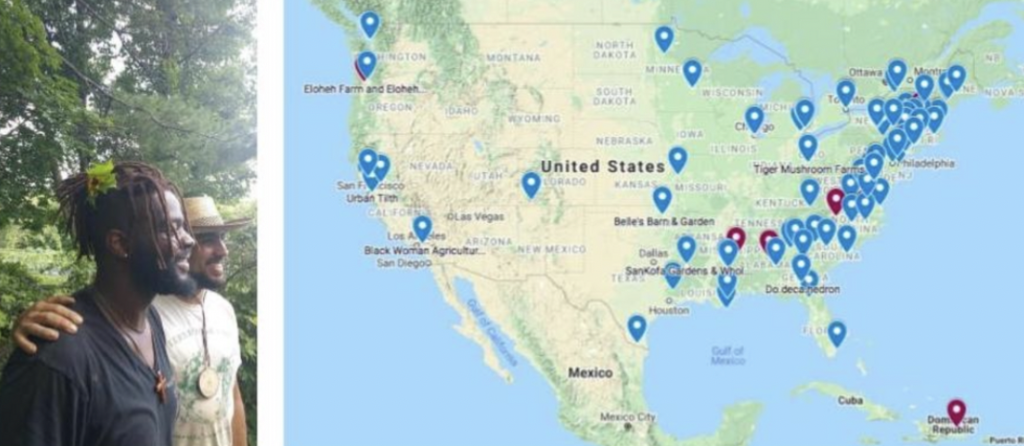
Oppression underwrites our food system, and a tangible action to address food sovereignty in our communities is taking reparations into our own hands through the creation of the Reparations Map for Black-Indigenous Farmers. We recognize that the food system was built on the stolen land and stolen labor of Black, Indigenous, Latinx, Asian and other people of color. We also know that we cannot wait for the government to acknowledge that stolen wealth and land must be returned. Some farmers have already received funding through this project, and we want to provide that opportunity to other Black and Brown farmers. If you have resources you want to share contact a farmer directly to share them, or if you have a project you want to include on the map contact Northeast Farmers of Color!

